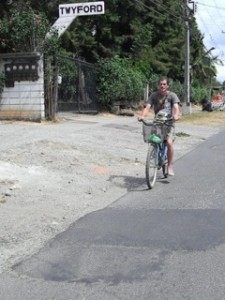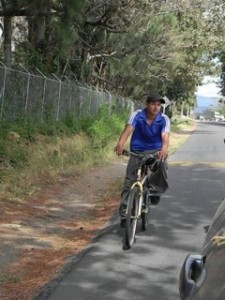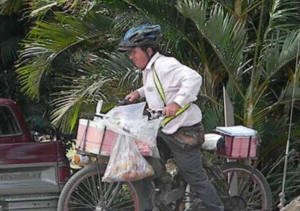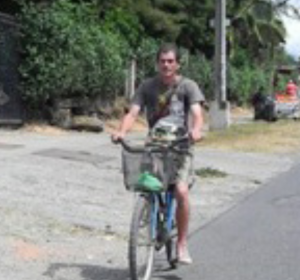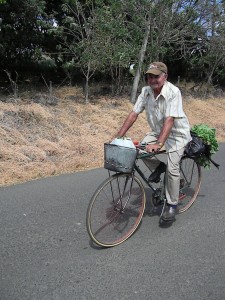Spring 2015 InGear
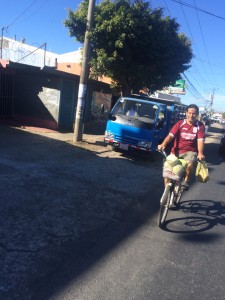
Carlos Camacho lives at the bottom of the hamlet in Dulce Nombre de Coronado, Costa Rica. He works in the workshop of a flag factory located near Coronado. He put a basket on his bicycle so he could begin to deliver vegetables and fruit to some of the families that are along his route on his way to work. Some of the fruit and vegetables are from his own garden and others he buys the day before. He manages to generate a little income while he is commuting, which he puts towards the cost of his five-year-old daughter’s education. The bicycle allows him to manage to drop off the vegetables and fruit to several households on his way to work.
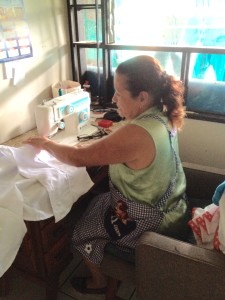
Martha Bejarano raised her daughter alone doing needlework. She lives in Aguas Zarcas of Ciudad Quesada, Costa Rica, in a very humble village. At great cost she is sending her daughter to school to become a professional, so now she is caring for her granddaughter. The daughter gave her a better P4P sewing machine with more stitches, so she can be more productive while her granddaughter is at school. She now lives much happier because one needs to save. She learned to operate the new machine almost immediately and it is allowing her to be more productive and do more work. Now her dream is to improve the kitchen and the refrigerator of her humble cottage with the added income she is earning.
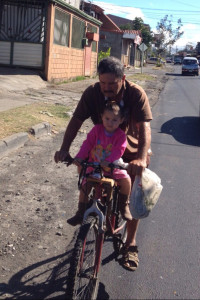
Javier Baldivia and his family live in the district of Los Guidos in the heavily populated canton (much like a county) of Desamparados, Costa Rica. In this urban environment, Javier and his wife work hard to maintain a steady income in order to afford both the basics for the family and school for their older two children. Construction is his main occupation but, as in many places, the work varies as much as the demand. He waits for his boss to let him know where and when to be at a job and needs to be able to get to the assigned location as quickly as possible.
Not only does he compete with Costa Ricans for work, but he must also contend with the enormous influx of other Nicaraguans looking for a better life and steady wages. The ownership of a single bicycle has enabled Javier to remain reliable and, thus, competitive in a congested world of surplus able bodies. As a bonus, on weekend mornings, he can also make use of his bicycle to run errands for the family, such as shopping with his daughter at a “Pulpería” to buy cheese and bread for their breakfast.
As our American cities embrace bicycle commuting and sharing as a new (much needed) trend, people like Javier have known for some time that two wheels mean much more than less traffic and good exercise. Bicycles are the most economical and efficient tool for many people of many incomes to keep their families secure and their environment healthy.

